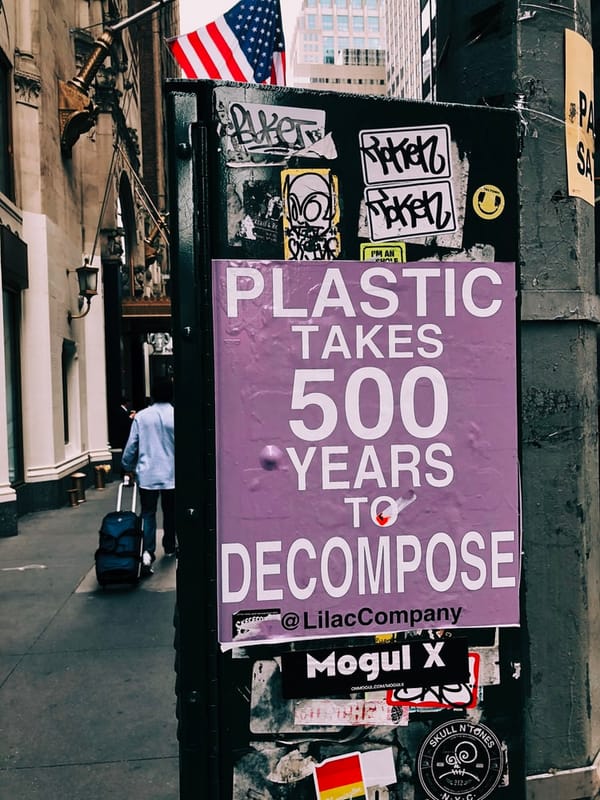The Future That Awaits Us
Sustainability contributor Shapol considers the similarities of the coronavirus pandemic and the ever-evolving issue of climate change.

I know, you must be exhausted by now of hearing comparisons between the current pandemic we are experiencing and [insert terrible moment in history here]. However, I haven't seen many comparisons with the ever-evolving coronavirus with the future problems that await us, namely climate change.
I say climate change is a future problem, but it is not just a problem for the future; it is a problem for the present too. This highlights the first similarity between the two stumbling-blocks for human progress: they are both invisible. Many coronavirus patients show no symptoms once they have contracted it. The virus cannot be detected by the patients, yet it is deadly. Likewise, many of the symptoms of climate change are hidden out of sight from us. The acidifying of oceans, a drastic drop in the number of bees, and coral reef bleaching are unnoticeable to most of us in highly developed industrialised nations.
We therefore forget that it is our shared responsibility to fix things. Yet hope comes from knowing that we are all in this together. Just like how we are in the same boat with the coronavirus, we are also under the same atmosphere. It will affect the whole world. We are all the problem, and we are all the solution. As the German saying goes, we aren't in traffic, but we are traffic - we are the problem. To decrease the impact of the coronavirus, we can enact social distancing and to tackle climate change, we can reduce our carbon footprint. In the media, we hear a plethora of content covering herd immunity. The equivalent to herd immunity in the fight against climate change is system change, with sustainability at its core, vital to protecting us and future generations.
the number of casualties due to the coronavirus is approximately 2.5 million, the same number of casualties estimated due to climate change between 2030 and 2040
Climate change might be concealed to us right now, and we may see it as a distant problem, but remember that Wuhan was once a distant problem too. We underestimated how close Wuhan was to us. Wuhan is not thousands of kilometres away from us, yet a few handshakes away. In comparison, climate change is not centuries away from us, it is right here right now banging on the door.
Similarly, both problems have their epicentres in the USA and China. The two world superpowers have experienced the greatest number of cases of COVID-19, and both are the biggest polluters in the world.
The number of casualties due to the coronavirus is approximately 2.5 million, the same number of casualties estimated due to climate change between 2030 and 2040, according to the World Health Organisation. Both estimates will rise at an alarming rate if serious action is not taken. Average global temperature increases of 1.5°C might not seem very dramatic, just like how a 'minor cough' may not seem very serious. Nevertheless, it is not only distressing, but it is life-threatening.
Action needs to be taken now.
We do not want to go back to a 'normal' in which the Earth is only a money-making resource, the sky above us is a bottomless bin, and next quarter's profits artificially inflated; meanwhile CEOs are sitting in reality-proofed boardrooms comparing the size of their bonuses and simultaneously begging for taxpayer bailouts, but refusing to pay taxes themselves.
That's a 'normal' we simply cannot afford to go back to. We need system change to alleviate climate change.








